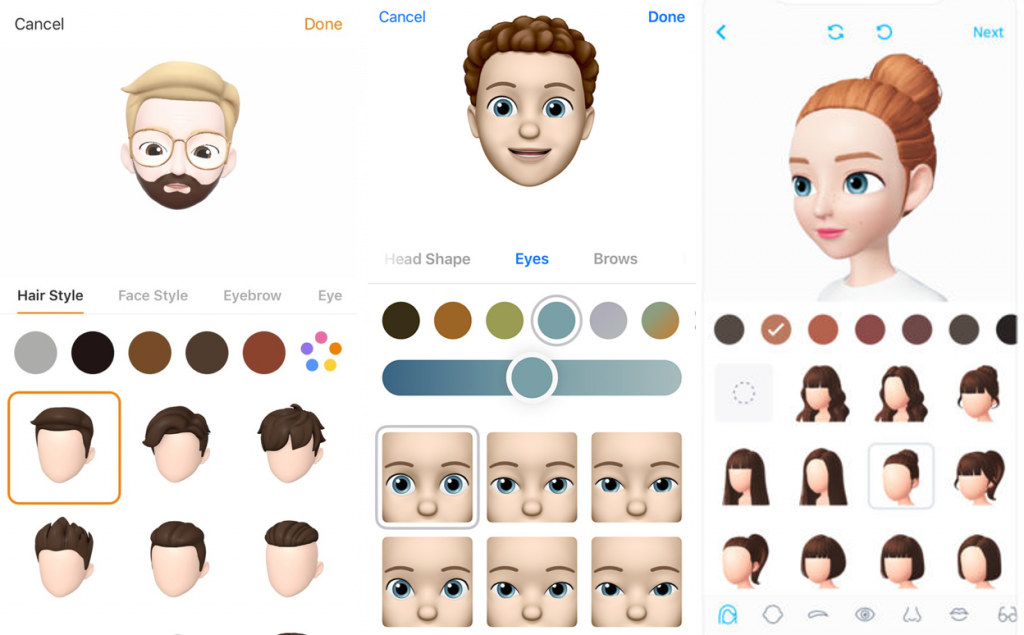Animated cartoon avatars are now making their way into China’s popular bite-sized videos, with Tencent-backed short video app Kuaishou releasing an AR avatar feature dubbed “Kmoji.”
The new addition to the app allows users to create their own avatar by customizing facial features—including skin tone, hairstyle, and eyes—or by simply scanning their face via the camera. It then tracks facial expressions and head movements so that users can record their Kmojis while singing or talking.
The feature works much like iPhone’s Memoji. However, the company said Kmoji doesn’t rely on 3D depth-sensing, instead using 2D technology to map out facial features for the 3D avatar. The company claims it is compatible with any iOS or Android device and that it is less GPU and CPU intensive, even running on a low-end smartphone.
Kuaishou has been developing the technology over the past few months. It launched its own version of iOS’ Animoji “animated emoji” function, in July.
Cartoon avatars have taken the Chinese internet by storm. After South Korean app Zepetofound popularity in China, Meitu, a Chinese selfie-enhancing app, released a similar feature earlier this month.

Comparison of various avatar customization tools. Left: Kmoji, Middle: Memoji, Right: Zepeto. (Image credit: TechNode, Apple App Store, and Google Play Store)
Meitu allows users to snap a picture and create cartoon versions of themselves that can be shared on social networks. The South Korean company behind Zepeto plans to release a localized Chinese version of its app by the end of December.
Kuaishou is one of the most popular short video apps in China. In October, the company was reportedly in talks to raise funds targeting a $25 billion valuation. Last month, Kuaishou founder and CEO Su Hua claimed that it had 130 million daily users.
The market for user-generated content in China is booming, yet retaining users and driving traffic are not without challenges. Facing fierce competition from players like ByteDance-backed Douyin, known as TikTok internationally, Kuaishou focuses on lower-tier cities and has been expanding its in-app features.
The company launched a mini-game feature earlier this month, which allows users to play video games within its app.
–This article originally appeared on Technode.





